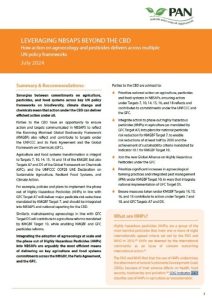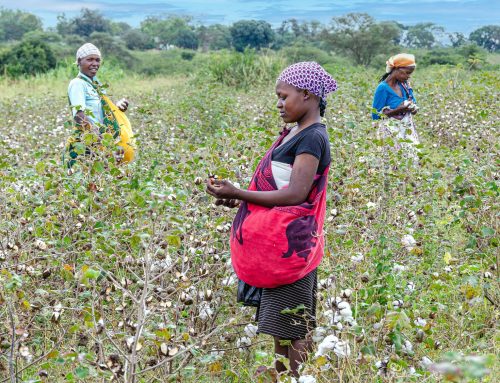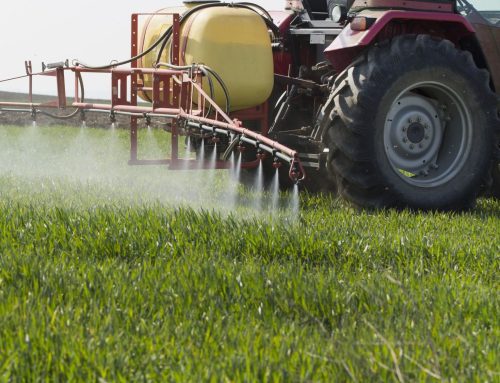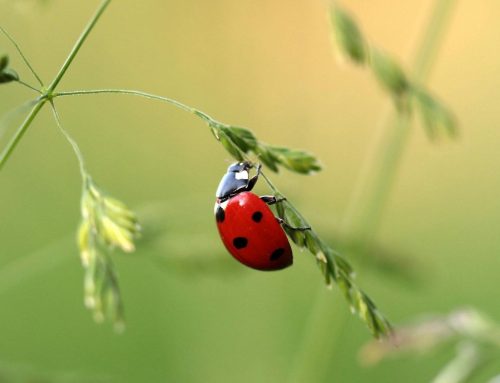PAN UK is heading to Colombia to ensure that pesticide risk reduction and agroecology are on the menu at COP16 of the Convention on Biological Diversity (CBD), which begins today.
We will be co-hosting a side event with the Agroecology Coalition on 24th October (details below) and will be calling for more countries to integrate agroecology and pesticide reforms as core ambitions of their national action plans. We will also follow negotiations on finance for implementation, the monitoring framework, and increased collaboration between the CBD and related UN processes.
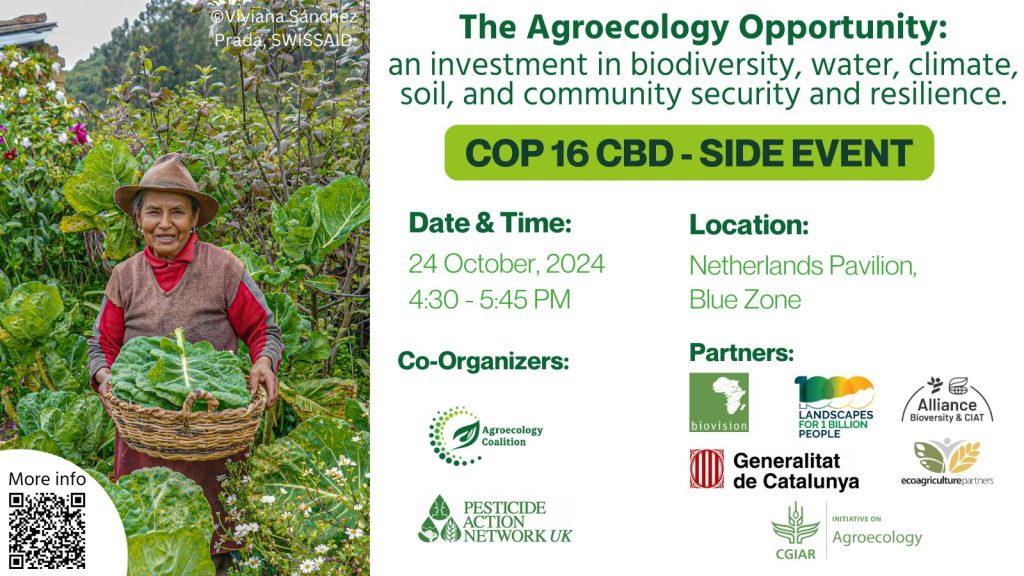
Since December 2023, at least 160 countries have signed a Declaration committing to integrate agriculture and food systems reforms into their climate and biodiversity action plans before UNFCCC COP30 in 2025. So far, only 20% of countries have submitted their updated national plans for the CBD. We will call for urgent action by countries to update their national plans and include three key elements:
- Pesticide risk reductions
- Phaseout of Highly Hazardous Pesticides
- Investment in agroecology
PAN UK’s involvement in the CBD goes back several years. In 2022, we helped inform Target 7 of the Global Biodiversity Framework (GBF), which mandates an at least half reduction in risk to biodiversity from pesticides globally by 2030. Since 2023, we’ve engaged with the development of the indicators for Target 7 to ensure a workable means of measuring (and driving) genuine progress on the ground.
Pesticides are an important driver of the triple planetary crises of biodiversity loss, chemical pollution, and climate change. The role of pesticides is reflected in commitments across two of the three global processes that address these crises, including the Global Biodiversity Framework (GBF) and the Global Framework on Chemicals (GFC). But, measures to address the impacts of pesticides should also be integrated into action under the United Nations Framework on Climate Change (UNFCCC) and Paris Agreement. Helping countries to see how tackling hazardous pesticides and promoting agroecology can deliver significant benefits across these three issues and global agreements will increase ambition and impact.
For more on the connections between these processes see Leveraging NBSAPs Beyond the CBD.
The pesticide risk reductions, HHP phase out, and investment in agroecology that PAN UK is advocating – and which are already pledged under the GBF and the GFC – can still be built into national plans across all three UN framework agreements to address the triple planetary crises of biodiversity loss, pollution, and climate change. Better late than never!
Despite clear threats – including from regressive elements of industry and some major countries in hoc with them – the opportunities to secure significant progress remain on the table at COP16.
Vamos a Colombia!

